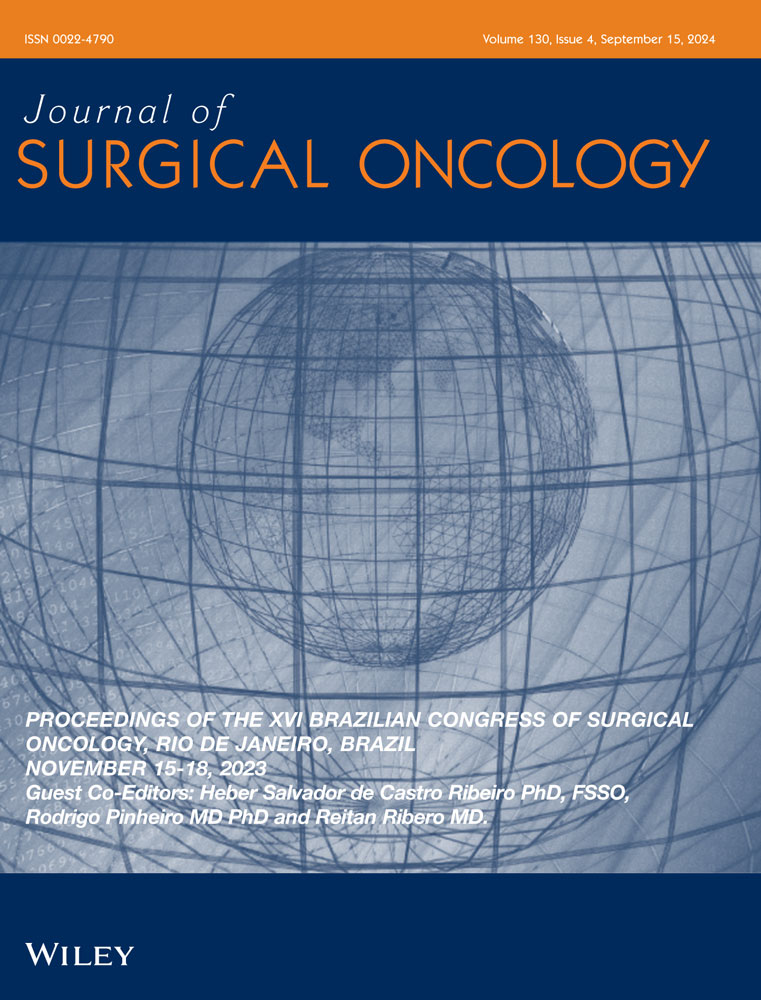Role of magnetic resonance imaging in the prediction of histological grade in soft tissue sarcomas
Abstract
Background
Soft tissue sarcomas are rare malignant tumors with significant heterogeneity. The importance of classifying histological grades is fundamental to defining the treatment approach.
Objective
To evaluate magnetic resonance imaging (MRI) in predicting the histological grade of soft tissue sarcomas.
Methods
A retrospective observational study included patients over 18 years undergoing MRI and primary tumor surgery at AC Camargo Cancer Center from January 2015 to June 2022. Two radiologists evaluated MRI criteria (size, margin definition, heterogeneity of the T2 signal, high-intensity peritumoral signal on T2, and postperitumoral contrast), and a grading prediction score was calculated. χ2 and logistic regression analyses were conducted.
Results
Sixty-eight patients were included (38 men; median: 48 years). Moreover, 52 high-grade and 16 low-grade tumors were observed. The MRI criteria associated with histological grade were peritumoral high-intensity T2-weighted signals (p < 0.001) and peritumoral postcontrast enhancement (p = 0.006). Logistic regression confirmed their significance (odds ratio [OR]: 11.8 and 8.8, respectively). Each score point increment doubled the chance of high-grade tumors (OR: 2.0; p = 0.014).
Conclusion
MRI effectively predicts histological grades of soft tissue sarcomas. Peritumoral high-intensity T2-weighted signals and peritumoral postcontrast enhancement are valuable indicators of high-grade tumors. This highlights MRI's importance in treatment decision-making for sarcoma patients.
CONFLICT OF INTEREST STATEMENT
The authors declare no conflict of interest.
Open Research
DATA AVAILABILITY STATEMENT
The data that support the findings of this study are available on request from the corresponding author. The data are not publicly available due to privacy or ethical restrictions.




